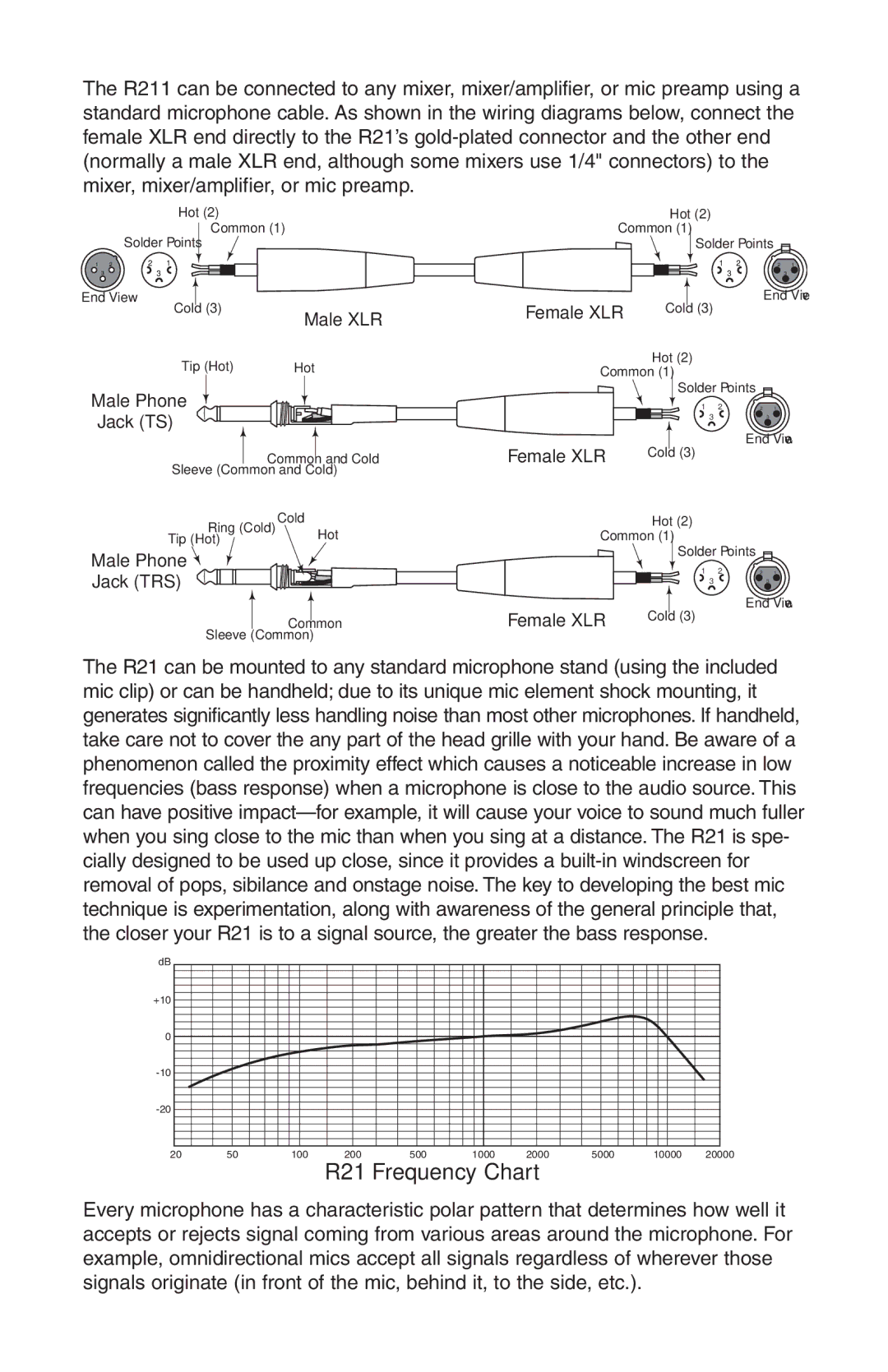R21 specifications
The Samson R21 is a standout microphone known for its versatility and performance, making it a popular choice among audio professionals and enthusiasts alike. This dynamic microphone is specifically designed to deliver exceptional sound quality while being highly durable, making it ideal for live performances, studio recordings, and broadcasting applications.One of the main features of the Samson R21 is its cardioid pickup pattern. This characteristic allows the microphone to capture sound from sources directly in front of it while minimizing background noise from the sides and rear. This is particularly beneficial in live settings where ambient noise can interfere with the clarity of vocals or instruments. By rejecting unwanted sounds, the R21 ensures that the primary audio source remains the focal point of any recording or performance.
The microphone is equipped with a frequency response range of 80 Hz to 12 kHz, tailored to suit vocal applications. This range effectively captures the warmth and clarity of the human voice while ensuring that high frequencies remain crisp without becoming harsh. This frequency response makes the R21 an excellent option for various vocal styles, from spoken word to singing, allowing it to adapt to different performance situations.
In terms of build quality, the Samson R21 boasts a rugged steel construction that ensures durability and reliability. This is particularly important for touring musicians and performers who require equipment that can withstand the rigors of frequent travel and use. The microphone also features a heavy-duty windscreen, which helps reduce plosive sounds and protects the mic from moisture and debris, extending its lifespan.
Another noteworthy aspect of the R21 is its affordability. Priced competitively, it provides excellent value for those seeking professional audio quality without breaking the bank. This makes it an attractive option for entry-level users as well as seasoned professionals looking to complement their existing microphone collection.
Finally, the Samson R21 is compatible with standard microphone stands and cables, making it user-friendly and easy to integrate into existing setups. With its blend of performance, durability, and affordability, the Samson R21 remains a reliable choice for anyone in need of a quality dynamic microphone for various audio applications. Whether on stage, in the studio, or for podcasting, the R21 delivers consistent results, enabling users to achieve the best sound possible.

